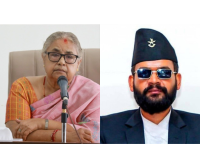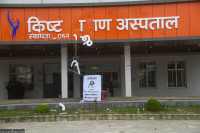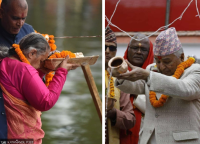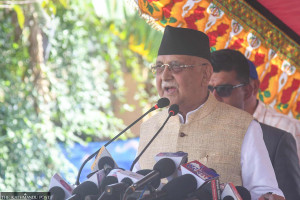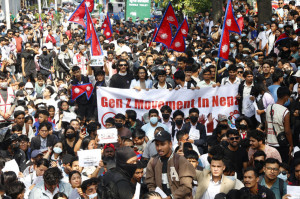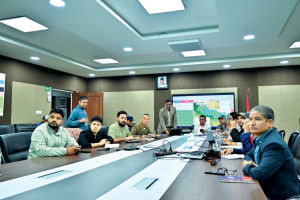National
Government indifferent towards plights of Nepali workers in India, labour migration experts say
Nepali migrants in India continue to remain out of foreign labour policies and state coverage even though the labour migration history between the two countries is more than two centuries old.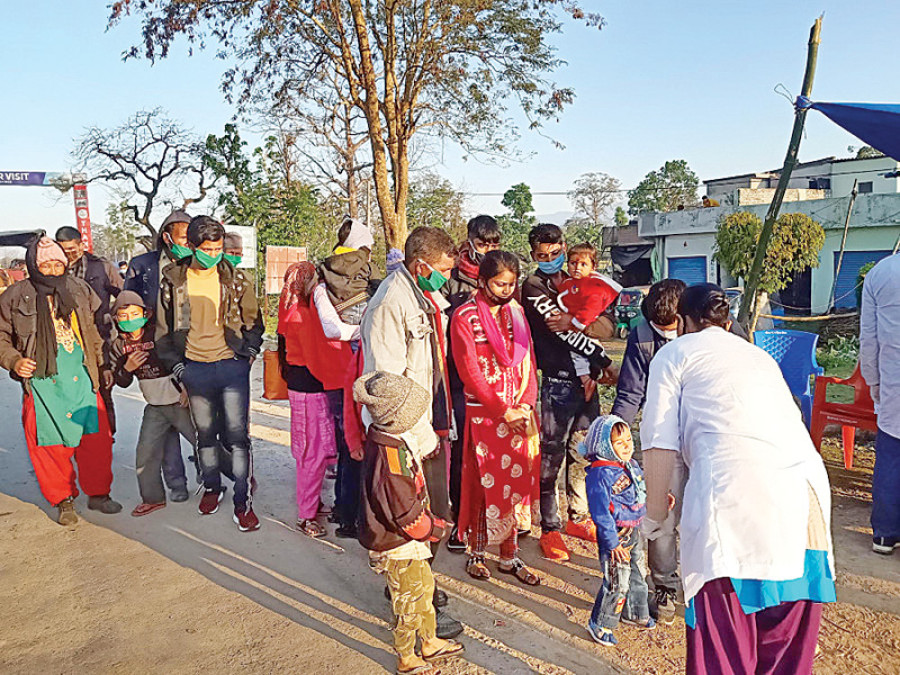
Chandan Kumar Mandal
Despite over two centuries of history, Nepali workers who migrate to India for work continue to be excluded from Nepal government's plans and policies, reflecting a discriminatory attitude against India-bound workers, stakeholders have pointed out.
Hundreds of thousands of Nepalis working in Indian cities and those migrating every year are subjected to discrimination and made to feel unsafe, as there are no policies in place to protect them and address their concerns, according to labour migration experts.
"Migration of Nepalis to third countries in the Gulf and Malaysia has merely three decades of history, and there are several policies and much attention have been given to govern labour migration to that part of the world," said Prakash Chandra Madai, India labour migration expert. "But Nepalis have been migrating to India since the early 19th century. Still, it remains so neglected that there is not even accurate data on Nepali migrant workers in India."
It is estimated that nearly 1 to 3 million Nepalis work in various parts of India. These workers have been working as agriculture labourers, security guards, factory workers, construction workers, hotel cooks and helpers and also as casual workers in a multitude of other sectors, including the formal ones.
However, a majority of them are working in the informal sector, making them vulnerable to various problems and exploitations.
According to Madai, who has closely followed the migration of Nepalis to India over the years, many Nepali workers in India even face problems in sending back the money as they do not even have identity cards required to remit the money.
"Most Nepali workers in India encounter difficulties while sending money to families as the majority of them are unskilled workers and working in informal sectors. Since they do not have formal appointment letters, they cannot produce the document when asked about the source of income while transferring the money," said Madai, during a virtual interaction organised on Friday. "They leave the money to their employers, who sometimes do not pay them fully when they return home. At times, they are looted en route to home or at the border."
To make things worse for India-bound Nepali workers, they are not even treated on par with workers migrating to other parts of the world, according to experts.
Formal migration to India is supposed to have begun with the recruitment of Nepali Gurkhas by the East India Company in 1815.
Since then more Nepalis were drafted into the British and Indian armies and young Nepali men started going abroad for work. In 1950, Nepal and India signed the Treaty of Peace and Friendship that provided free movement to Nepali and Indian nationals across the borders among other privileges.
"Even the Foreign Employment Act excludes India-bound workers. Why was that even needed?" said Madai. "Either the Act should be amended to cover Nepali workers in India or there should be a separate law governing Nepali workers migration to India."
In June, the Supreme Court, responding to a writ petition, had issued a show-cause notice to the government, asking why Nepalis working in the southern neighbour were not recognised in the same way as those who go to other countries for employment.
The Supreme Court has asked both parties to appear for a hearing on the case on April 8.
Migration experts say the inclusion of labour migration to India under 'foreign employment' category can also provide them protection under the government policies for migrant workers, which include financial support and compensation to workers and their families.
Another labour migration expert Rameshwar Nepal pointed out that the lack of documentation and identity cards have led to unsafe working and living conditions for Nepalis based in India.
"No official identity cards for those working in India not only means they cannot send money but also they are not protected," said Nepal, who is also South Asia director of Equidem Research, a UK-based human rights research organisation. "Besides there are no mechanisms where they can file their grievances. While Indian sides may refuse to file complaints, Nepali security forces posted at the border ask them that they should file the complaint in India since the offence has taken place in India."
Labour migration experts also pointed out the tangible discrimination against Nepali workers in India during the Covid-19 pandemic.
"While the Nepal government still does not have official data on Nepalis who got infected and died abroad, including India, the government’s repatriation plan discriminated against Nepalis working in India," said Nepal. "The government allowed flights from third countries, except India. What if Nepalis also wanted to return home from India on chartered flights? Thousands of Nepali workers were left stranded at the India-Nepal border for days. Some had swum across a river to come back to Nepal, and when caught, they were paraded by Nepal police."
Tens of thousands of Nepali workers have returned home from India since the Covid-19 outbreak began. Districts in the western Nepal of Karnali Province and Sudurpaschim Province saw a wave of returnee migrants from India in the last few months. However, unable to find jobs at home, they have already started returning to India to work as seasonal farmworkers.
"Those migrating to India from far western districts are mostly poor and have no option than to migrate. Workers have returned home with the pandemic, but now some of them are also going back," said Bimala KC, a minister and spokesperson for the Karnali Province government. "We have envisaged some plans and also finalised our labour policy to provide training, soft loans and other subsidies targeting India returnees. The Chief Minister Employment Programme is also implemented to provide employment in the province."
But the federal government has to come forward to address other issues faced by Nepali migrant workers going to work in India, added the province minister.
"What we can do is collect data on people migrating to India and roll out schemes to provide them with employment. Local-level and provincial level governments cannot do much," said KC. "Rest of the issues like facilitating remittance sending, their safety and other rights should be ensured by the federal government because provincial governments cannot do anything beyond its territory."




 17.12°C Kathmandu
17.12°C Kathmandu
